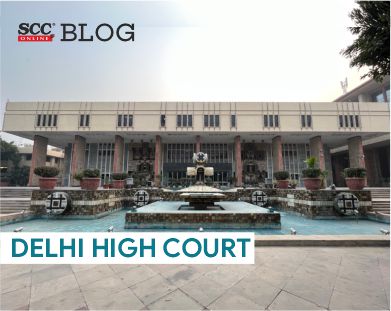Delhi High Court: In a Review Petition filed under Order XLVII Rule 1 read with Section 114 of the Civil Procedure Code (CPC) seeking review of the order/judgement wherein the petition under Section 11 of the Arbitration & Conciliation Act, 1996 (‘Act, 1996’) was dismissed stating that the Court had no territorial jurisdiction to entertain thepetition, Neena Bansal Krishna, J., upheld the impugned judgment and held that the power of review cannot be confused with appellate powers which enable a superior Court to correct all errors committed by the subordinate court and here cannot be any re-hearing of the original matter.
Counsel for the respondent submitted that the power of review has not been provided for under the Arbitration & Conciliation Act, 1996, and thus, the present application is on the face of it, is not maintainable.
The Court observed that the entire gamut of controversy is around the concept of “place” and the “seat”. The Arbitration Law envisages two jurisdictions, one is the place where the arbitration may take keeping the convenience of the parties in mind, and the other is the “seat” which determines the jurisdiction of the Courts where the parties may agitate any controversy arising out of the Arbitration.
On the contention of the petitioner that the place of arbitration is in fact the seat of arbitration conferring the jurisdiction upon that court and the exclusive jurisdiction clause is not the determinative factor for the seat of arbitration, the Court noted that this cannot be a ground for review when a detailed order has been made on its facts to hold that this Court has no jurisdiction to entertain the petition under Section 11 of the Act, 1996.
Reliance was placed on Mankastu Impex Pvt. Ltd. v. Airsual Ltd., (2020) 5 SCC 399, the Court noted that while the Clause clearly provided that the place of Arbitration would be New Delhi, there was a contra indica as it specified that the exclusive jurisdiction would be Courts at Gurgaon/ High Court at Chandigarh. The cause of action arose essentially in Gurgaon where the suit property is located and thus, the Courts at Gurgaon have exclusive jurisdiction.
Placing reliance on Jain Studios Ltd. v Shin Satellite Public Co. Ltd., (2006) 5 SCC 501, the Court noted that once a case has been decided on merits, the applicant on the grounds of review cannot be permitted to argue the main matter afresh. Once the prayer has been refused, no review petition would lie which would amount to re-hearing of the original matter.
The Court further noted that the power of review cannot be confused with appellate powers which enable a superior Court to correct all errors committed by the subordinate court. There cannot be any re-hearing of the original matter. A repetition of old and overruled argument is not enough to reopen the concluded adjudication. The power of review should be exercised with extreme care, caution and circumspection and only in exceptional cases.
The Court held that the submission made on behalf of the petitioner is in the domain of challenging the order on merits which is beyond the scope of review. Such a petition is in the name of the second innings which is impermissible and unwarranted and cannot be granted.
[Kush Raj Bhatia v. DLF Power & Services Limited 2022 SCC OnLine Del 4263, decided on 06-12-2022]
Advocates who appeared in this case:
Mr. Akhil Salhar, Mr. Sunanda Tulsyan and Mr. Arnav Pal Singh, Advocates for the Petitioner;
Ms. Meghna Mishra and Mr. Taurn Sharma, Advocates for the Respondent.
*Arunima Bose, Editorial Assistant has reported this brief.






